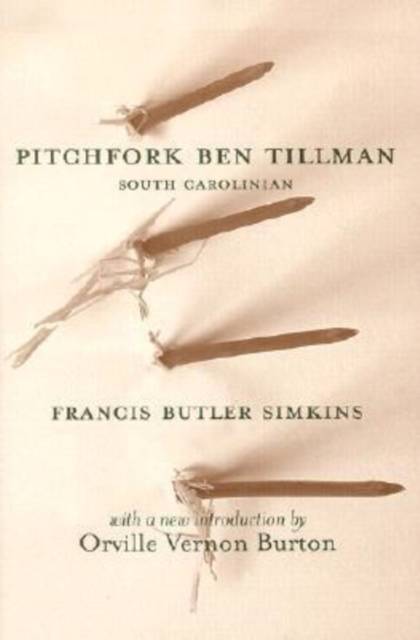
- Afhalen na 1 uur in een winkel met voorraad
- Gratis thuislevering in België vanaf € 30
- Ruim aanbod met 7 miljoen producten
- Afhalen na 1 uur in een winkel met voorraad
- Gratis thuislevering in België vanaf € 30
- Ruim aanbod met 7 miljoen producten
Zoeken
Omschrijving
Benjamin Ryan Tillman (1847-1918) accomplished a political revolution in South Carolina when he defeated Governor Wade Hampton and the old guard Bourbons who had run the state since the end of Reconstruction. Tillman and his movement aimed to expand the political control of the state to lower- and middle-class whites at the expense of African Americans and the state's former leaders. During his political ascendancy as governor and then United States Senator, Tillman introduced the state's dispensary system and shaped the state's 1895 constitution into a bulwark of white supremacy. His legacy was one of divisiveness between black and white and between whites of differing economic and geographical backgrounds. Even as Tillman championed greater equity for white farmers and mill workers, he masterminded the pernicious system of segregation and disfranchisement for African Americans during the 1890s when he not only trampled their needs, but stripped them of fundamental political and civil rights. Almost single-handedly Tillman established the iniquities of Jim Crow that countless other Southern demagogues would imitate. These "accomplishments" would plague the South and the nation until this day. Orville Vernon Burton's new introduction to this Southern classic looks at both Tillman and author Francis Simkins as prime examples of southerners with tremendous talent but unsettling accomplishments.
Specificaties
Betrokkenen
- Auteur(s):
- Uitgeverij:
Inhoud
- Aantal bladzijden:
- 632
- Taal:
- Engels
- Reeks:
Eigenschappen
- Productcode (EAN):
- 9781570034770
- Verschijningsdatum:
- 1/11/2002
- Uitvoering:
- Paperback
- Formaat:
- Trade paperback (VS)
- Afmetingen:
- 168 mm x 216 mm
- Gewicht:
- 830 g

Alleen bij Standaard Boekhandel
+ 75 punten op je klantenkaart van Standaard Boekhandel
Beoordelingen
We publiceren alleen reviews die voldoen aan de voorwaarden voor reviews. Bekijk onze voorwaarden voor reviews.








